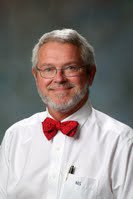In Praise of Coaches
I have never liked trick questions because I don’t enjoy feeling like a fool. Even today I shy away from certain types of riddles or “brain teasers” because I suspect that I will feel foolish at the end of the exercise. You can imagine, therefore, what it was like for me in high school when I spent a significant amount of time working on a math problem that (we later learned) had no solution! “It has no solution!” the teacher would chortle. “This is an important lesson to learn! There are some problems without a solution!”
Some of the class took this information in good humor. Not I. I felt duped. I began to feel suspicious of the schooling process. Maybe these people didn’t want me to succeed.
For this reason I do not offer trick questions to my students of any age group. I have a teaching philosophy that embodies a basic tenet: I want my learners to succeed. In the event that a concept has an unusual or counter-intuitive solution, I point this out in advance. Perhaps there is an oversensitivity to this issue in my teaching, but that’s the way it is. I often wonder if various instructors in my past had said something like, “Now watch out. One of these problems doesn’t have a solution. Work on it and see what you can find out.” ( Of course, I was in high school. Maybe they actually did say these things! Maybe I wasn’t listening!).
Some have accused me of being overly simplistic when I reduce teaching modalities to the techniques that coaches use on the court or field. I find them to be useful examples, however, and here are a few examples. What cross country coach would offer the runners confusing directions for the course? What basketball coach would encourage an offensive play that keeps players in the paint “to teach them the 3 second rule”. It just doesn’t happen. It doesn’t happen because every coach I have ever met in my life wants her players to succeed. In all fairness, I think most teachers probably want the same thing, but all too often it just doesn’t translate as well.
Recently a group of teenagers were planning a multi-event competition. I was astonished at how frequently they conspired to make a particular victory nearly impossible. By then end of their session I could see how a “winner” might be chosen, but the result was truly dismal. A team would be declared the winner by not losing as much as the other teams! It made me wonder where these guys got their ideas. My prejudice is that their ideas came from their relatively short lifetimes of being fooled by trick questions. If we would think more like coaches (and less like the bad sort of managers) our students are bound to succeed.












